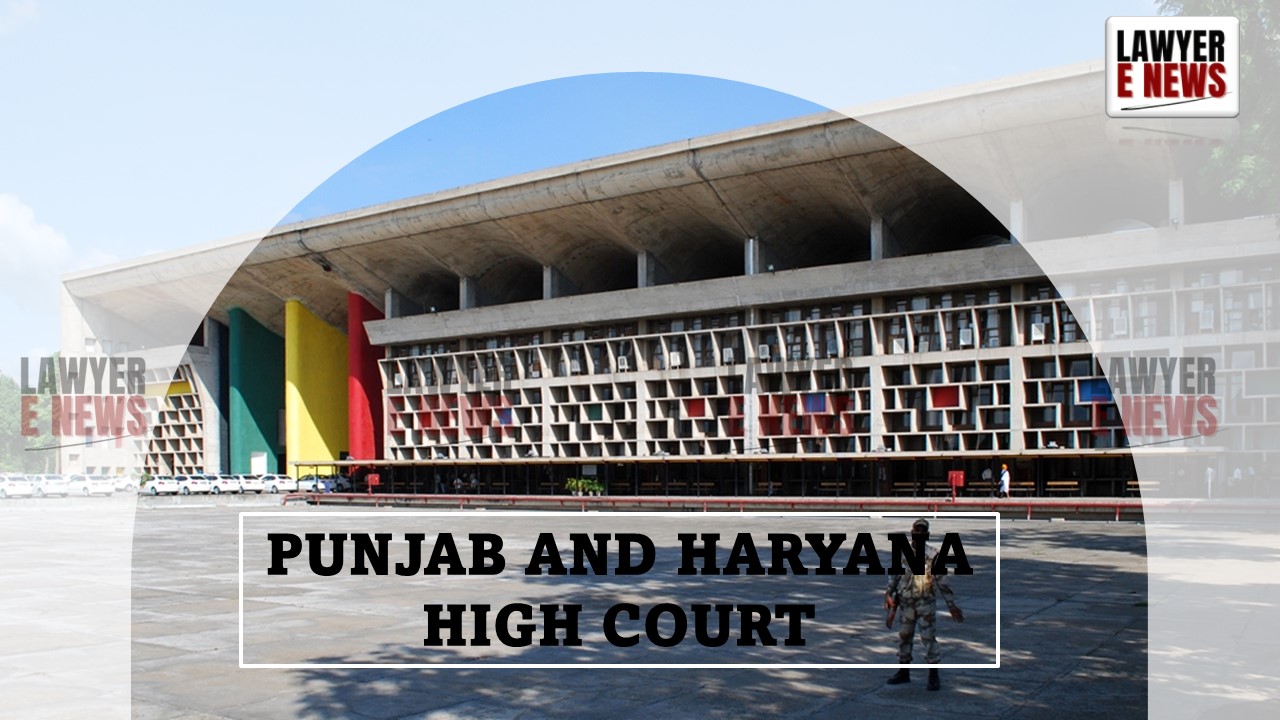-
by Admin
15 February 2026 2:36 AM



Second FIR for the Same Cause of Action is an Abuse of Process: In a significant ruling Punjab and Haryana High Court in Bharat Bhushan Sharma @ Ashu v. State of Punjab and another (CRM-M-47928-2022) quashed FIR No. 18 dated September 22, 2022, registered under various provisions of the Indian Penal Code (IPC) and the Prevention of Corruption Act, 1988. The petitioner, a former Minister of Food, Civil Supplies & Consumer Affairs, sought the quashing of the FIR, arguing that it was a second FIR based on the same cause of action as an earlier FIR.
Justice Mahabir Singh Sindhu held that the second FIR violated fundamental legal principles and amounted to double jeopardy. The Court observed: "Second or successive FIR filed in connection with the same or connected cognizable offense is not maintainable and is a clear case of abuse of the process of law."
The case revolved around allegations of corruption and misuse of official position to amend the Punjab Foodgrains Labour and Cartage Policy 2020-21. It was alleged that the petitioner, as Minister, introduced amendments to the policy with an ulterior motive to benefit favored contractors, resulting in the exclusion of certain participants and financial losses to the public exchequer.
The first FIR (No. 11) was registered on August 16, 2022, at Police Station Vigilance Bureau, District Ludhiana. Subsequently, a second FIR (No. 18) was registered on September 22, 2022, at Police Station Vigilance Bureau, District Jalandhar, based on similar allegations. The petitioner argued that the second FIR was impermissible under law and constituted double jeopardy.
The Court ruled that the registration of a second FIR based on the same cause of action was unsustainable. Citing the Supreme Court’s decision in T.T. Antony v. State of Kerala [(2001) 6 SCC 181], the Court observed: "The sweeping power of investigation does not warrant subjecting a citizen to fresh investigation for the same incident. Successive FIRs not being a counter-case are impermissible and amount to abuse of process."
Since both FIRs arose from the same set of facts and allegations, the second FIR was held to be illegal.
The amendment to the Punjab Foodgrains Labour and Cartage Policy 2020-21, which was the basis of the allegations, had already been judicially reviewed and upheld by Division Benches of the High Court in related writ petitions. The Court found no evidence to suggest that the amendment was made to benefit specific individuals.
The Court held that the criminal proceedings were initiated by unsuccessful bidders under the guise of a criminal offense to harass the petitioner. It stated:
"Launching criminal prosecution for a contractual matter is a misuse of power and amounts to harassment. Such actions cannot be sustained in the eyes of law."
The Court noted that the allegations in the FIR did not disclose any cognizable offense and at best, the complainant could have sought judicial review of the policy amendment. The Court remarked:
"The allegations lack merit, and the FIR is a classic case of giving a cloak of criminal offense to a contractual dispute."
The High Court quashed FIR No. 18 dated September 22, 2022, along with all consequential proceedings. The Court concluded that the FIR was an abuse of the process of law and violated the prohibition on successive FIRs.
Justice Sindhu stated: "There is no hesitation to observe that the prosecution initiated by the Vigilance Bureau is unwarranted and amounts to double jeopardy. Consequently, the second FIR and all proceedings arising therefrom are quashed."
This judgment underscores the importance of protecting individuals from repeated prosecution for the same offense and reinforces the principle that successive FIRs on identical allegations are impermissible. By quashing the second FIR, the Court reaffirmed its commitment to preventing abuse of the legal process.
Date of Decision: December 20, 2024
